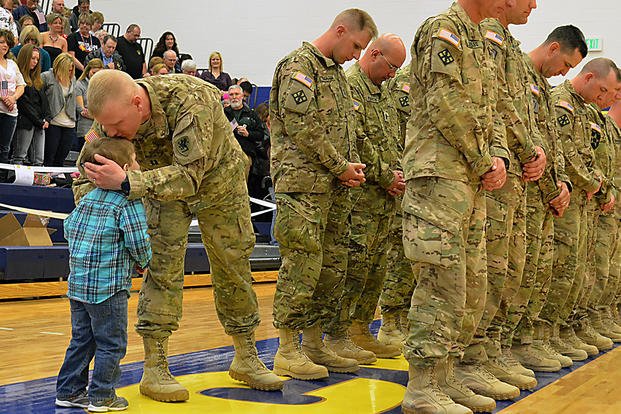When my military family deteriorated, I sought help from the one person who could relate: my 70-year-old Green Beret Vietnam veteran uncle. I needed help to understand what my husband was going through and what I could do to help him become a part of our family and western society again after deployment.
When I spoke with my uncle about our challenges, I heard about key moments that forever changed his life. Amazingly, yet troubling, they were nearly verbatim to those moments that came from my own soldier’s mouth.
“I can pinpoint the exact moment when I changed,” they said, “what I witnessed that changed how I saw the war.”
Both of them recalled seeing an American soldier’s body parts. “I became so angry and hateful. I enclosed into myself. I would never be the same. I had to turn into another person to be able to function,” they said, and then “I could not come out of who I became.”
As the spouse, I learned whether it be alcohol, adultery, pornography, gambling, rage or whatever, it is was not my fault. All of those are products of war and we, the families, are its CONUS casualties.
Knowing that is not an excuse or a free ticket, but helps to explain behaviors and is a critical step in the healing process.
Some have made suggestions that during reintegration we should not overburden our soldiers. But to me, that just pushes them farther away and reinforces the “I could not come out of who I became” attitude.
Insights like that helped my veteran family and I create an updated Dos and Don’ts for reintegration, in the hope that our list will help others avoid some of the conflicts we encountered. These may be extreme for some people. If your service member has not seen combat or does not struggle with PTSD or TBI issues, these may not be for you. But they have helped us.
Our new list of reintegration dos and don’ts.
Do give your service member space: “Do not get too close to me. Do not box me in. Do not corner me.”
Do not create confrontation with your service member. “Do not get in my face. Do not keep badgering me. I have been in a confrontational state for months. Your aggressive behavior will bring out my aggressive behavior.”
Do give your service member a way out. Out of a building, out of the house, out of the movie theater. They want to be able to see where the exits are.
Do let your service member have his back against the wall. “I need to see who is coming towards me.”
Do let your service member dictate his space. He may need to have the curtains closed and doors locked at all times.
Do let him retrain himself while driving. He may drive aggressively at times, and need to retain himself on how to drive in the U.S. What he does not need is his passengers informing him of every mistake.
Do not ask agitating questions. Questions like “did you kill anyone?” or “Did you see any action?” can be hard. We all know someone who has died. We all are in pain, just at different levels. Try not to “one-up” other veterans or spouses. Your warrior will open up when ready.
Kristine Bacon has been a military spouse for 25 years. She has crashed and burned twice in their marriage. It was not pretty. It was painful, cruel and left lasting scars. Today she has children who watched their parents fight for their marriage when many gave up. She is blessed to have a man that stepped into the light and out of the darkness, as it was swallowing him up -- but it took the reality of him seeing the damage he was doing in his own household to look at himself in the mirror and say "I am the problem.”
Keep Up with the Ins and Outs of Military Life
For the latest military news and tips on military family benefits and more, subscribe to Military.com and have the information you need delivered directly to your inbox.









